Orthopaedic Surgeon Cover Letter Examples

May 29, 2025
|
12 min read
Craft a standout orthopaedic surgeon cover letter: Make your application a cut above the rest with these straightforward tips. Turn your experience and skills into a compelling story that ensures your application isn't a joint effort.
Rated by 348 people
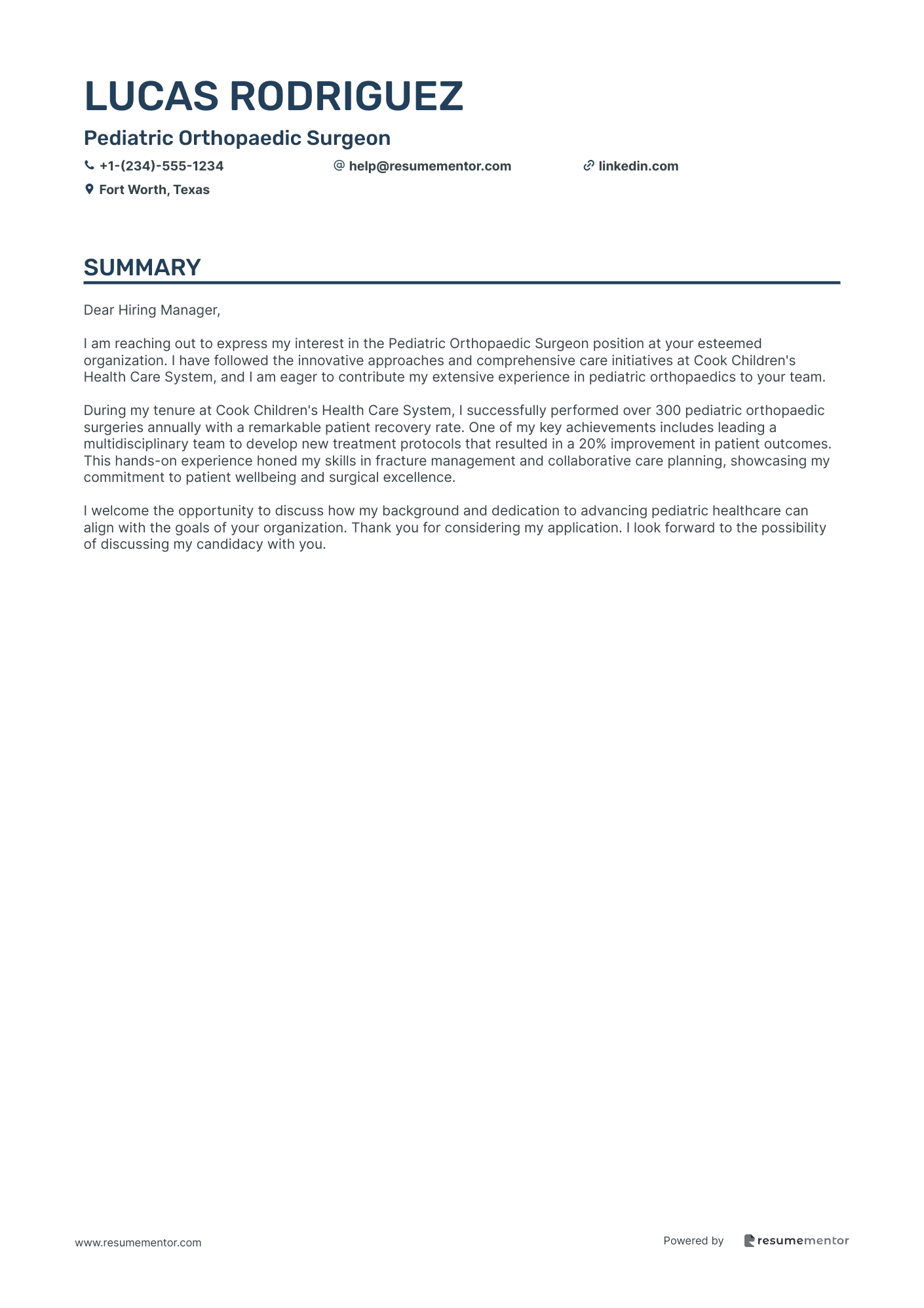
Pediatric Orthopaedic Surgeon
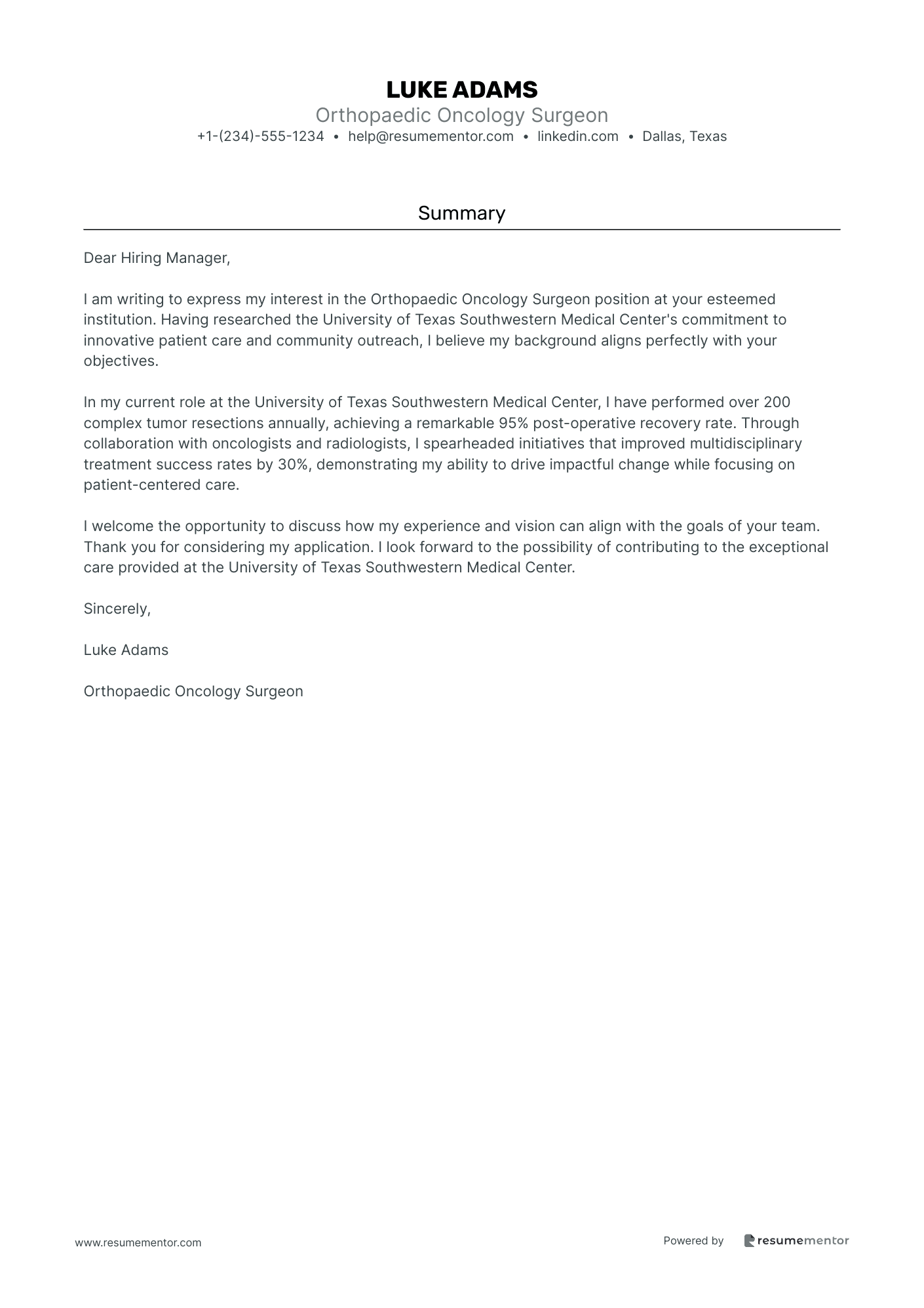
Orthopaedic Oncology Surgeon
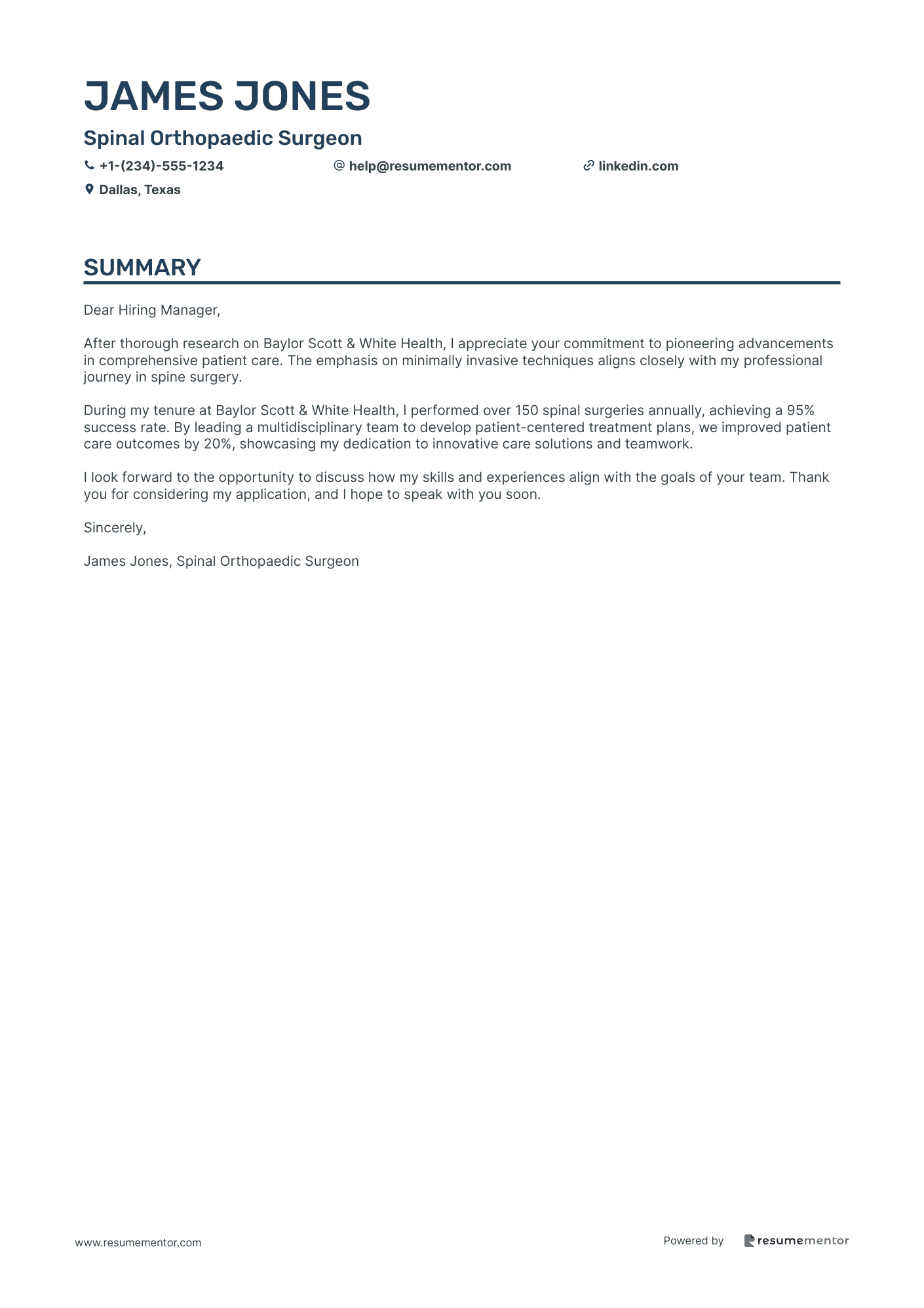
Spinal Orthopaedic Surgeon
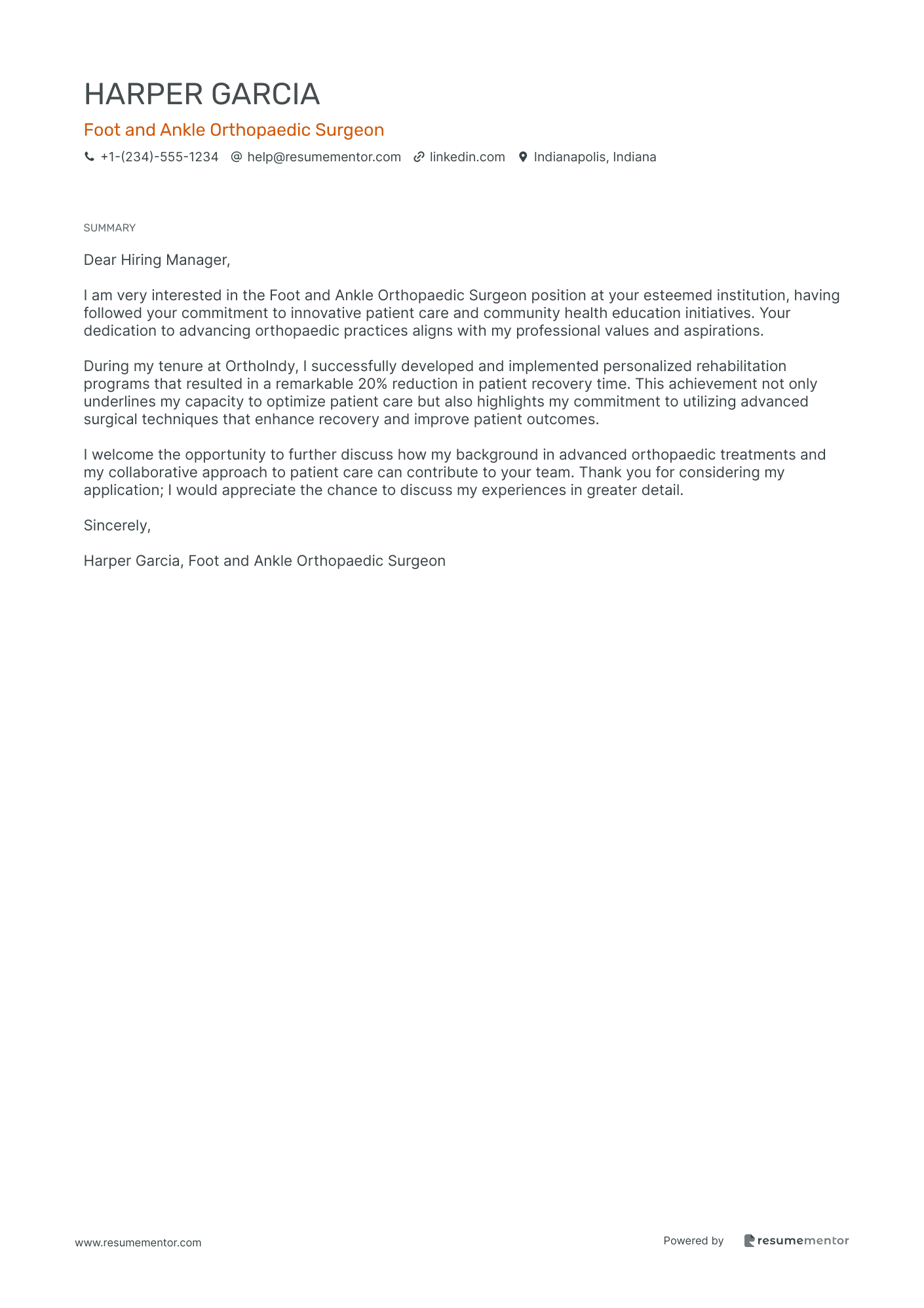
Foot and Ankle Orthopaedic Surgeon
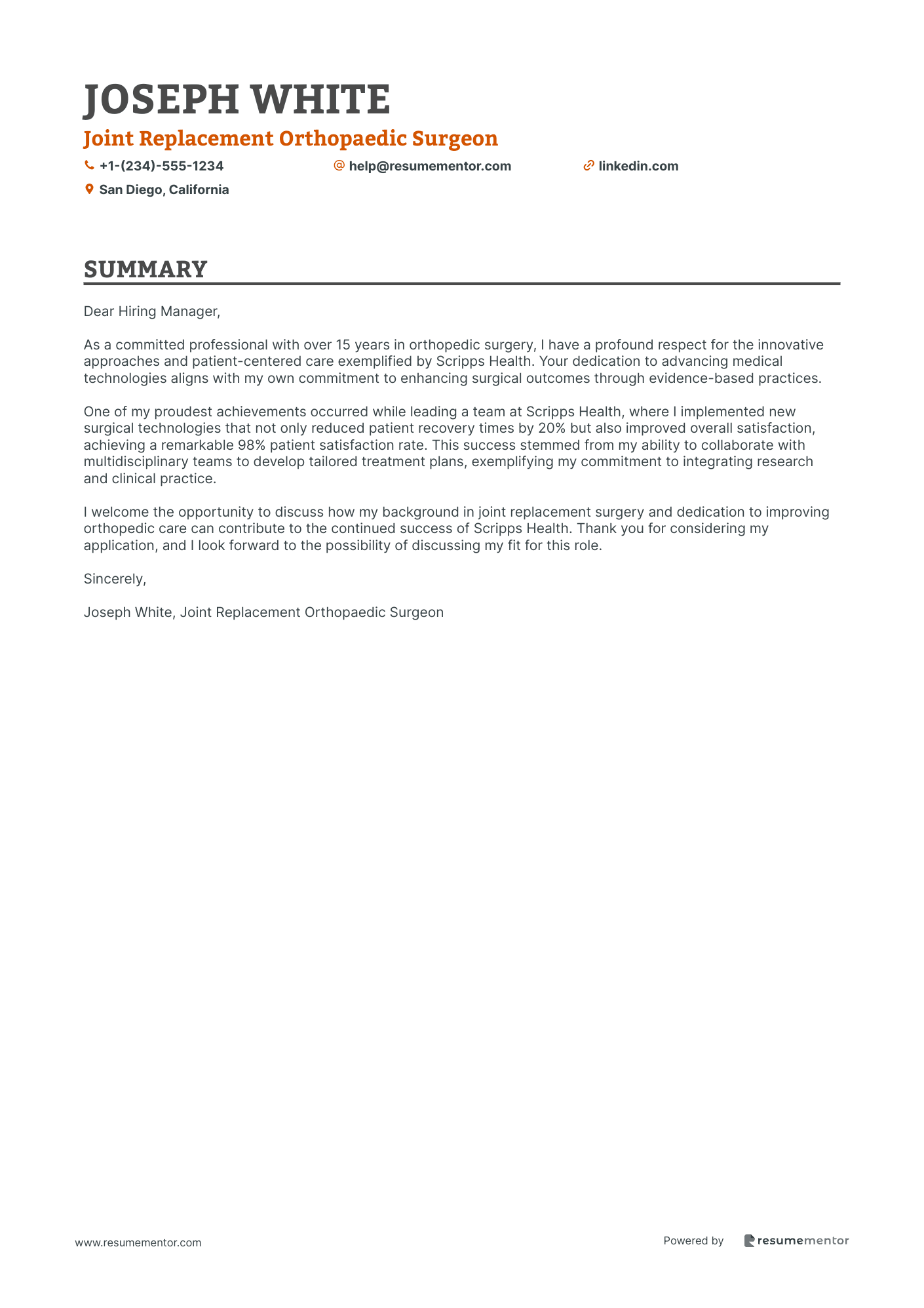
Joint Replacement Orthopaedic Surgeon
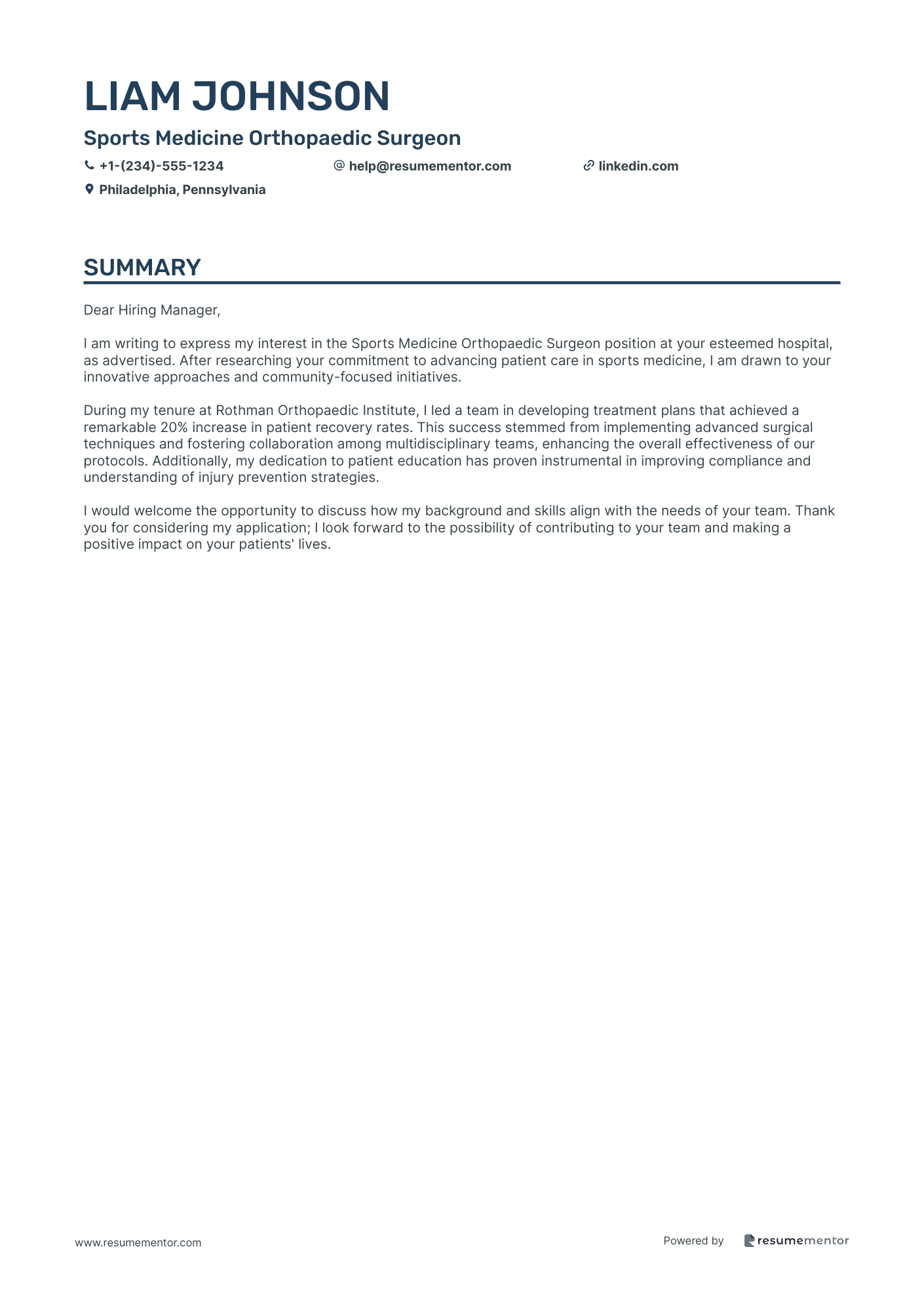
Sports Medicine Orthopaedic Surgeon
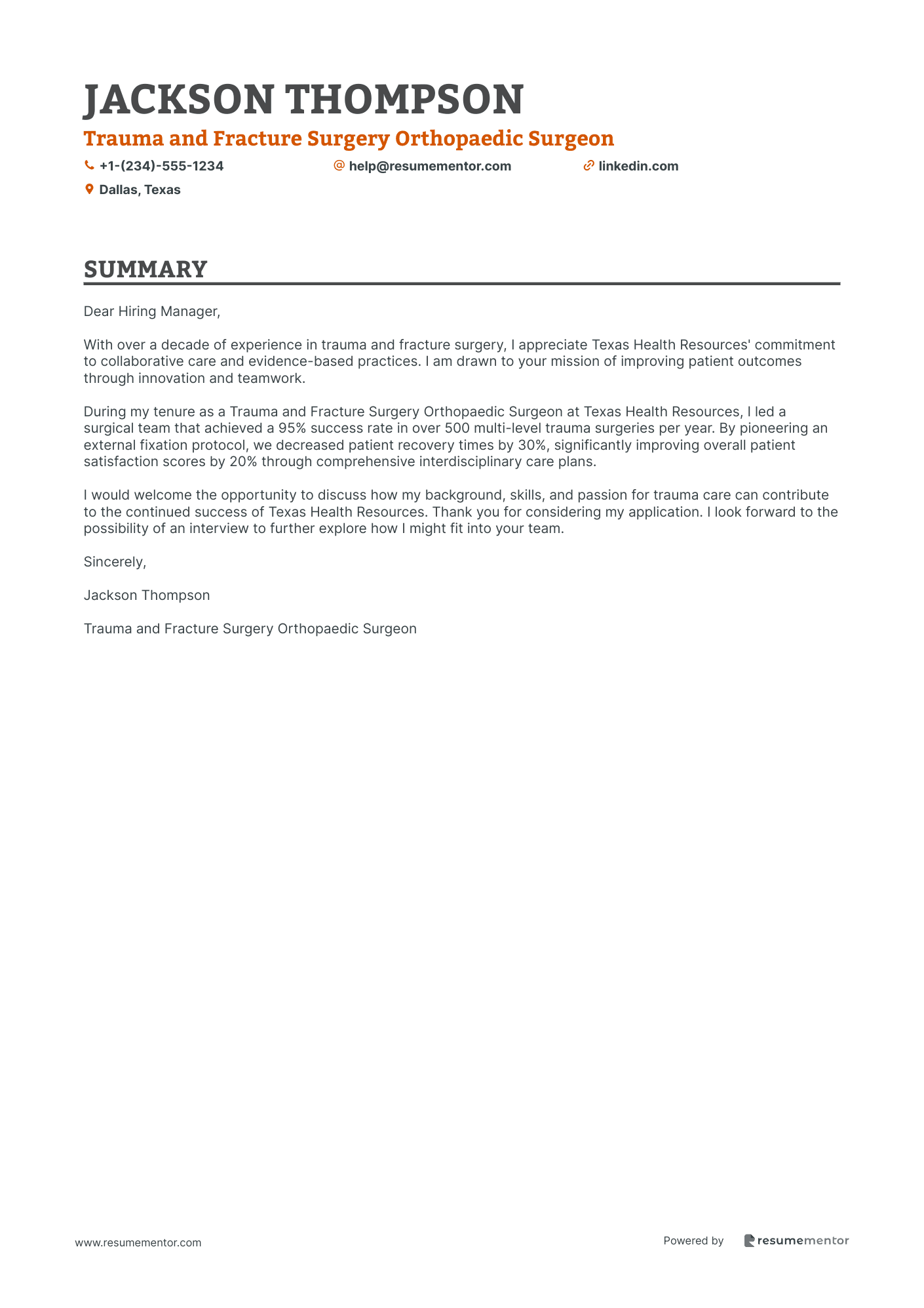
Trauma and Fracture Surgery Orthopaedic Surgeon
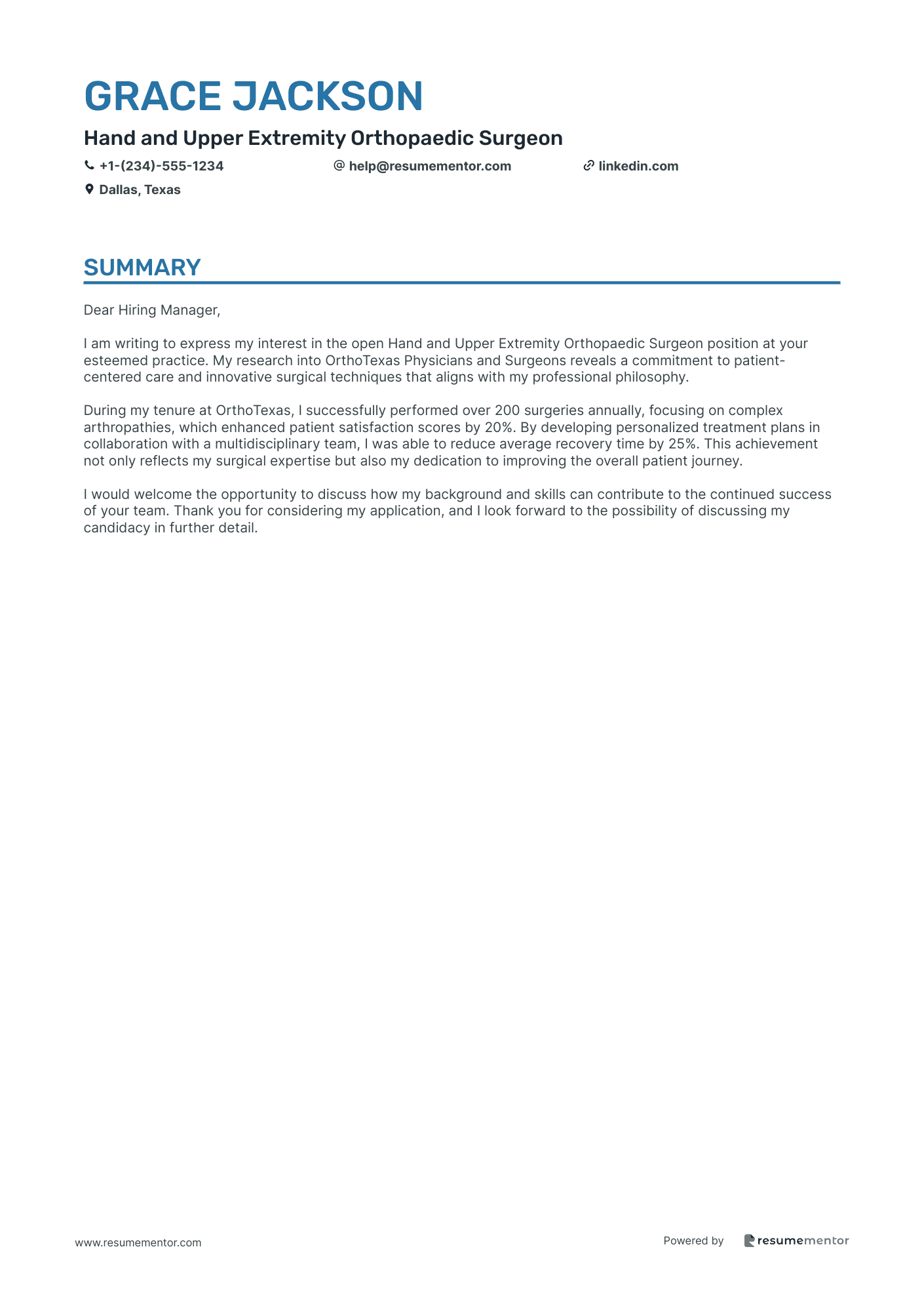
Hand and Upper Extremity Orthopaedic Surgeon
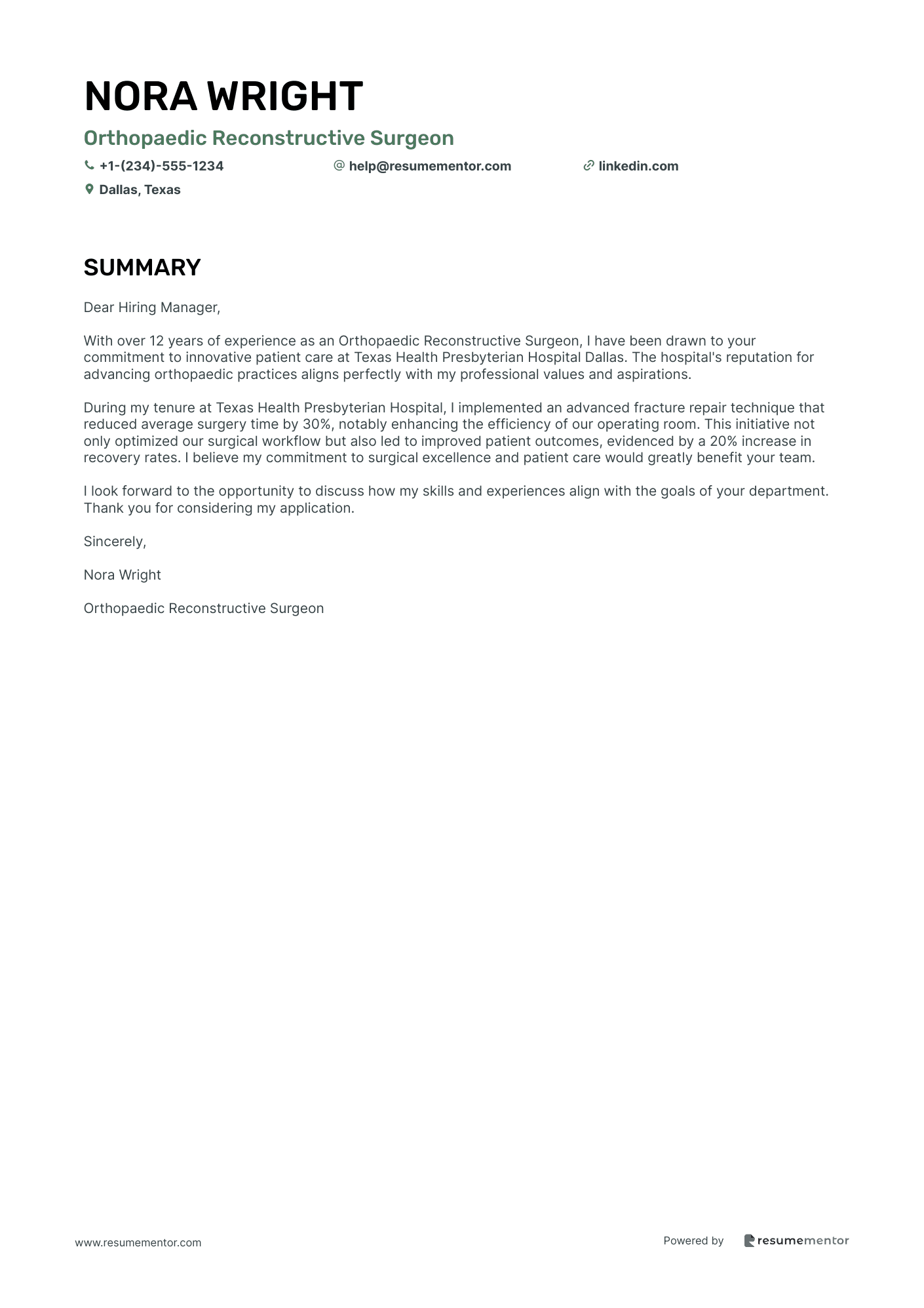
Orthopaedic Reconstructive Surgeon
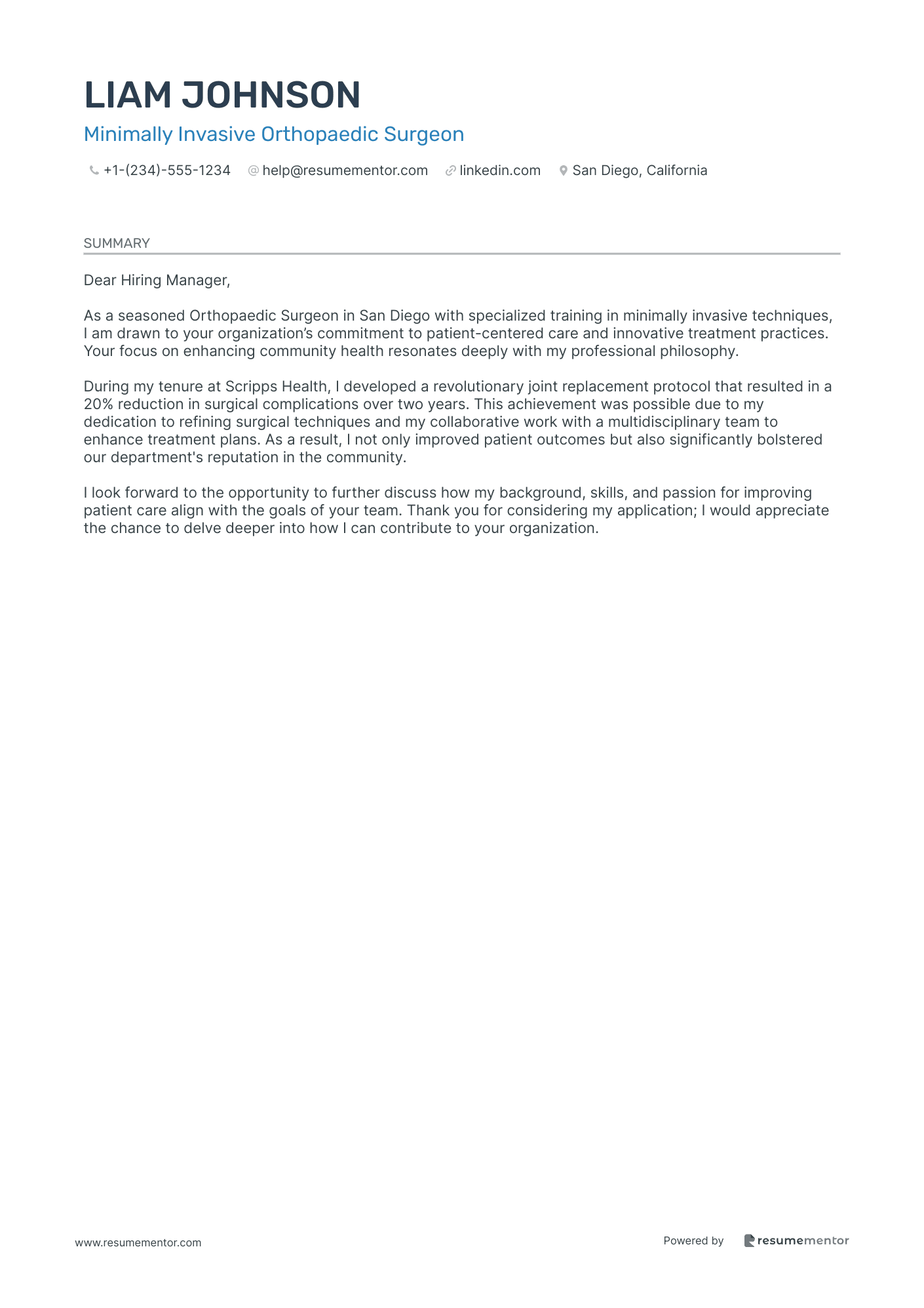
Minimally Invasive Orthopaedic Surgeon

Pediatric Orthopaedic Surgeon cover letter sample
Orthopaedic Oncology Surgeon cover letter sample
Spinal Orthopaedic Surgeon cover letter sample
Foot and Ankle Orthopaedic Surgeon cover letter sample
Joint Replacement Orthopaedic Surgeon cover letter sample
Sports Medicine Orthopaedic Surgeon cover letter sample
Trauma and Fracture Surgery Orthopaedic Surgeon cover letter sample
Hand and Upper Extremity Orthopaedic Surgeon cover letter sample
Orthopaedic Reconstructive Surgeon cover letter sample
Minimally Invasive Orthopaedic Surgeon cover letter sample
Related Articles

Continue Reading
Check more recommended readings to get the job of your dreams.
Resume
Resources
Tools
© 2026. All rights reserved.
Made with love by people who care.
